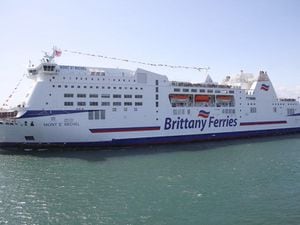Government signs new no-deal Brexit ferry contracts
Deals worth a total of up to £86.6 million have been made with four companies.

The Government has signed contracts with four ferry companies to provide freight capacity in the event of a no-deal Brexit.
Deals worth a total of up to £86.6 million have been made with Brittany Ferries, DFDS, P&O and Stena Line to transport as many as 3,000 lorries per week for six months from October 31.
If a Brexit agreement is reached between the UK and the EU, the contracts will be cancelled at a cost to taxpayers of £11.5 million.
Then-transport secretary Chris Grayling faced calls to resign earlier this year after handing a £14 million contract to Seaborne Freight to run freight services, despite the firm having no ships or trading history.
His successor, Grant Shapps, said: “The UK is getting ready to leave the EU on October 31 and, like any sensible government, we are preparing for all outcomes.
“Our decisive action means freight operators will be ready and waiting to transport vital medicines into the country from the moment we leave.”
The four firms will operate on 13 routes from eight UK ports which are less likely to face disruption in the event of a no-deal Brexit.
These are Teesport, Hull, Killingholme, Felixstowe, Harwich, Tilbury, Portsmouth and Poole.
The contracts were awarded to half of the eight companies selected to be on the Government’s freight procurement framework due to their proven ability to manage major projects.
The system will be in place for four years from October 31.
Brittany Ferries UK managing director John Napton said: “We have the flexibility in both our fleet and route network to allow us to help the UK Government with the shipment of critical products like medicines in the event of a no-deal Brexit.
“In the last weeks, we have been working on a series of Brexit dry-runs, to ensure that freight keeps moving whatever framework we face on November 1.
“These dry-runs have involved ports on both sides of the Channel, customs staff, border force and other partners.
“We are confident that we have made the necessary preparations for all our customers, including the Department for Transport, to ensure that freight keeps moving as seamlessly as possible.”
Last month, Prime Minister Boris Johnson was forced to reveal Operation Yellowhammer assessments of the impact of leaving the EU without an agreement, which included possible medical shortages, food price rises and major cross-channel trade delays.





